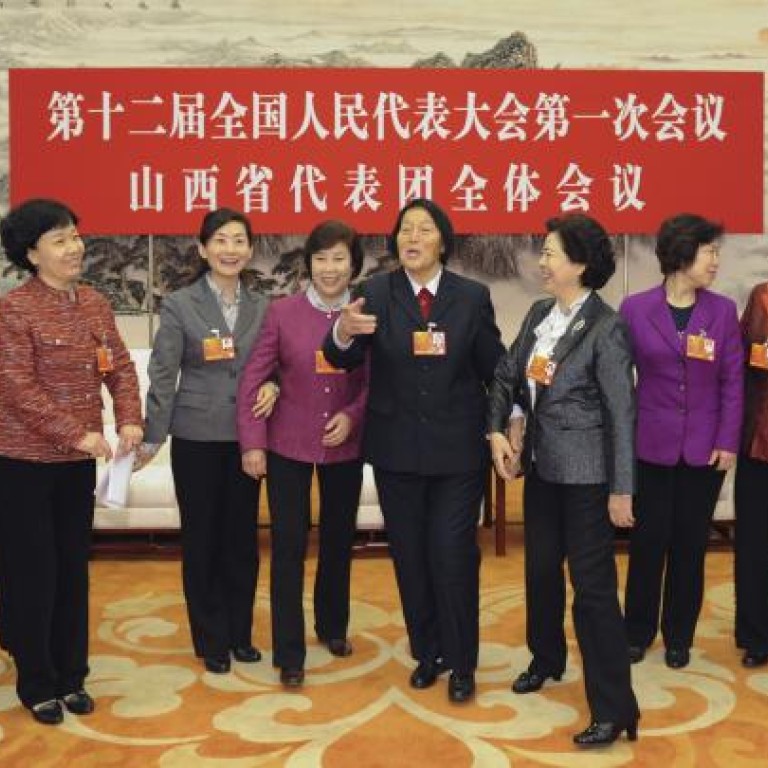
'Impractical for women to occupy 50pc of NPC and CPPCC seats'
NPC deputy Yu Ruiyu, the president of an accounting firm, said it was good for the two bodies to allocate a percentage of seats for women, but 50 per cent would be impractical because men were tougher, physically and mentally.
It was unrealistic to expect women to occupy half the seats in the National People's Congress and Chinese People's Political Consultative Conference, some female delegates said.
NPC deputy Yu Ruiyu, the president of an accounting firm, said it was good for the two bodies to allocate a percentage of seats for women, but 50 per cent would be impractical because men were tougher, physically and mentally.
Women account for about 23 per cent of NPC deputies and 18 per cent of CPPCC delegates. Both percentages are the highest since the first sessions of the two bodies.
The 10th NPC required the percentage of female deputies in the 11th NPC to reach 22 per cent, but that goal was not met until the current, 12th NPC.
"Setting a sex ratio of the NPC and CPPCC shows that we realise the importance of women," Yu said.
Setting a sex ratio of the NPC and CPPCC shows that we realise the importance of women
But she said she did not expect women to hold up half the sky in politics or business because they tended to devote more time to their families.
Wang Wenya, deputy president of the Shanxi Provincial Higher People's Court and a CPPCC delegate, said that was "not the result of traditional ideological shackles, but the nature of a mother".
While some female delegates enjoyed receiving more acclaim than men for similar achievements, Wang said such favouritism was unnecessary and could sometimes backfire.
She said many male delegates often made concessions to their female counterparts, but "the over-respect for us creates more pressure for women".
Zhai Meiqing, president of the Heung Kong Group and a CPPCC delegate, said women should be given the right to choose whether they wanted to retire at 55 or 60. By law, women retire five years earlier than men, and Zhai said that was one obstacle faced by women with an eye on top political positions.
Only a handful of women occupy senior posts, with just 10 on the Communist Party's 205-member Central Committee.

